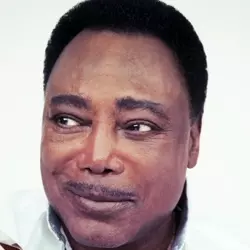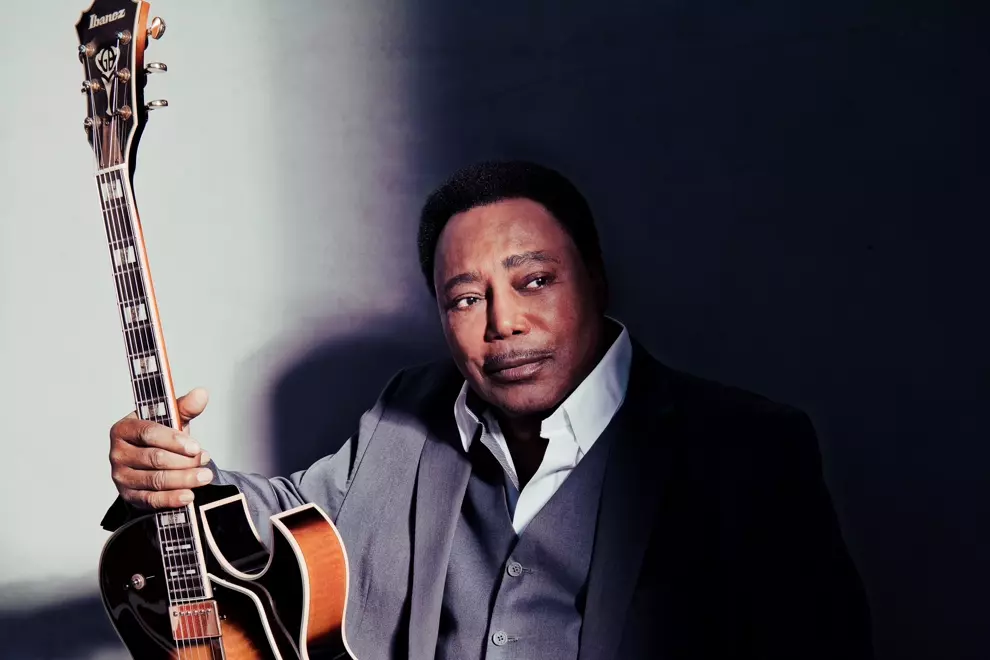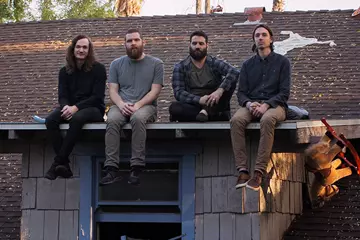 George Benson
George BensonGeorge Benson is famous as a virtuoso of smooth soul jazz. But the American vocalist, guitarist and trailblazer has recently rediscovered his roots in the blues. In 2019 he released the nostalgic album Walking To New Orleans, cyclically covering classics by his childhood heroes Chuck Berry and Fats Domino – COVID-19 derailing a subsequent tour.
"It's bringing back a bit of great history for me, because I was a young person coming up listening to that music, by both of those artists and they were both special," Benson says. "They were not just ordinary radio people. They had a great audience and they always came up with great material, so they were always worth listening to. So, at this time in my life, I get the opportunity to bring back some of those great memories. It's quite an honour."
In April, the gracious "Mr B", as his team call him, will at last head to Bluesfest Byron Bay and perform side shows. "I've been hearing nothing but good things about it, so I'm very anxious!," he laughs. Benson just turned 79.
Benson has distinguished associations. In the '60s he was a sideman to Miles Davis. Benson contributed to Stevie Wonder's opus Songs In The Key Of Life. Plus he first recorded The Greatest Love Of All for 1977's Muhammad Ali bio-pic, The Greatest – the ballad eventually faithfully remade by Whitney Houston. But Benson himself is an innovator who's traversed blues, jazz, R&B, soul, funk and hip hop.
Don't miss a beat with our FREE daily newsletter
Raised in Pittsburgh's historically Black Hill District, Benson emerged as a child star. Benson's mother exposed him to showtunes and he was singing in school. His stepfather, who played guitar, presented him with a ukelele. "My hands were too small for guitar, so he found a ukulele in a garbage can and he glued it back together and put strings on it and taught me the very beginnings of the ukelele." Benson established renown locally as Little Georgie Benson, airing his debut single in 1954. By his late teens, he was a gigging guitarist.
Then primarily an instrumentalist, Benson issued successive jazz albums. Still, even in the '60s, he was a boundary-breaker. Benson abstractly reinterpreted The Beatles' LP Abbey Road as The Other Side Of Abbey Road, laying it down live with the likes of Herbie Hancock. Yet, signing to Warner, he finally crossed over in 1976. "One producer [Tommy LiPuma] said, 'Man, I heard you singing one day and I was knocked out.' He said, 'I wondered why they never used your voice on records.' I told my manager, 'That guy is gonna be a producer of my next album.' He came up with one song, This Masquerade, and that changed my whole life. Everything changed after I recorded the album Breezin'."
Indeed, Breezin' attracted Grammy nominations, its title track originally a Bobby Womack composition for Hungarian émigré Gábor Szabó. Benson won Record Of The Year with his hit quiet storm rendition of Leon Russell's This Masquerade (which Australian Helen Reddy had also cut). However, Benson would become a bona fide R&B icon on joining Quincy Jones' nascent Qwest Records, again charting majorly with 1980's disco-funk groove Give Me The Night (mind, he added guitar to his new labelmate Frank Sinatra's LA Is My Lady).
Along the way, Benson impacted Prince stylistically – and today he acknowledges that the purple legend's guitar skills were underrated. "I think Miles Davis was the one who actually put it into perspective, the right perspective, when he said, Everything Prince did, he did exceptionally well. I think that's very correct, because he was a bit of a perfectionist at everything he did."
Coincidentally, Benson worked on his 1996 album That's Right at Prince's Paisley Park Studios. Benson regrets that he and Prince didn't collaborate – referring to the Minnesotan as his "spiritual brother", both being Jehovah's Witnesses. "I was always looking forward to doing something like that, but he was not an easy guy to communicate with on that level, because he very seldom spoke at all to people that he wasn't comfortable with," Benson chuckles. "He didn't know me well, but he knew of my career and he had a lot of respect for what I do. As a matter of fact, he came down to the studio when I was recording to hear what we were doing. I gave him one of my guitars, which I saw in a lot of his performances and on the printed page everywhere in the world… We became spiritual brothers later. But, yeah, he was quite a character, I can tell you that!"
Eight years ago, Benson published Benson: The Autobiography, approaching the endeavour as part of a creative, and personal, process. "My life has been one big movie and the movie's still running. So for me to write the book was not looking back. It was just picking up pieces as I go along and trying to get people to understand what it was I was thinking and what I've been trying to accomplish from day one. It's a continuation. So we're still writing that book, or producing that movie, in my mind and in my soul."
Benson's influence pervades contemporary music. His catalogue has been extensively sampled in hip hop, and he connected with Mary J Blige for the sublime Seven Days. In 2018, Benson featured on the Gorillaz' jam Humility, Damon Albarn having previously introduced Womack to a new generation. "I thought it was a little bit crazy because, first of all, I didn't know the group that well," Benson admits. "When I heard the song, I said, 'Wow, you sure you want me on this record?' But they said, 'Yes, yes, yes!'" Benson requested that the music be amplified, like it was a live concert – and inspiration struck. "I knew instantly where I belonged in that song. It turned out to be a great experiment for me and a great recording."
And Benson appreciates hip hop. "Well, it's one of the languages that they're speaking today. Our children have the right to make life the best that they can make it, because this is their time. Our hope is that they don't go too far, to the left or right. But it's always been something like that in every generation. I remember when Elvis Presley first came out, they thought he was gonna be the end of all music; that music was finished because Elvis came out! He turned out to be quite an artist with a lot to offer the music world and his legacy is unmatched anywhere. We never know what's gonna happen with music or any of the arts – especially music though."
Decades in, Benson has achieved much. Even amid the pandemic, he dropped Weekend In London – his first live album in 30 years, recorded earlier at the fabled Ronnie Scott's Jazz Club. As for future challenges? "I kind of take things as they come, because no one can tell me what's going to happen tomorrow. We can only guess that and we can only hope towards tomorrow, but no one knows exactly. So I say, Keep your musicianship up and keep it high and flexible so that whatever comes up you'll be able to operate in that environment."
GEORGE BENSON 2022 AUSTRALIAN TOUR DATES
Bluesfest
Sunday 17th April 2022
State Theatre, Sydney, NSW
Monday 11th April 2022
Wednesday 13th April 2022
Thursday 14th April 2022
Palais Theatre, Melbourne, VIC
Tuesday 19th April 2022
Wednesday 20th April 2022
















